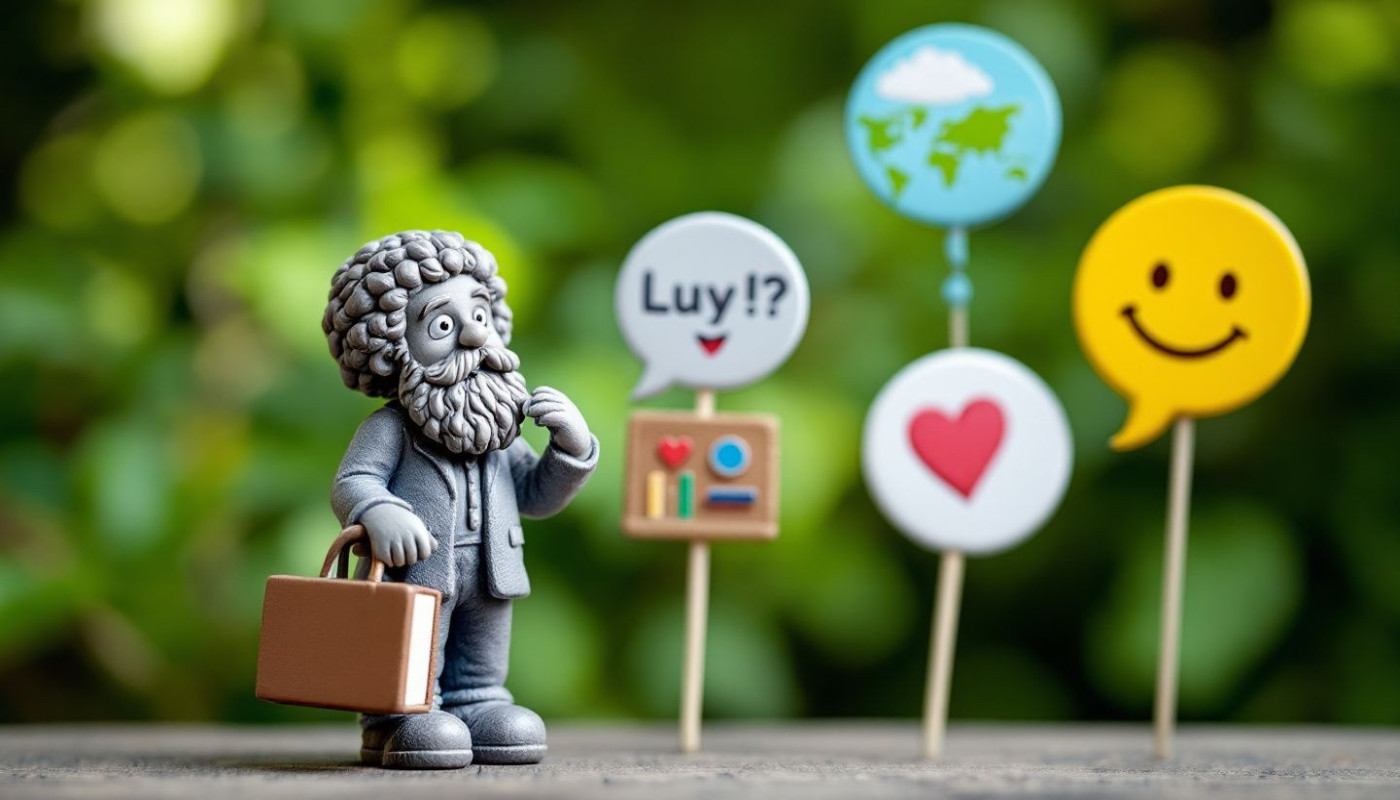Table of contents
Understanding how children learn and grow is an ongoing journey that continues to fascinate educators and parents alike. Exploring the roots of educational philosophies reveals fascinating insights into the ways early teaching methods can shape a child's cognitive, social, and emotional well-being. Dive deeper to discover how foundational ideas in early education continue to influence effective learning environments and holistic development today.
The roots of early education
Historical educational theories have profoundly influenced present-day approaches to teaching, laying strong educational foundations that prioritize the needs and potential of each child. From the philosophies of figures like Johann Pestalozzi and Maria Montessori to the constructivism of Jean Piaget, early learning benefits have been continually recognized and refined. These philosophies emerged as responses to rigid, rote learning systems, instead highlighting the innate curiosity, creativity, and individuality found within every child. Through an evolving understanding of child development, these foundations advocate for environments where learners engage actively and construct meaning through experience, rather than passively receiving knowledge.
Philosophy in education has consistently underscored the significance of child-centered learning, where teaching approaches are adapted to match developmental stages and unique abilities. Early educational philosophies shaped curricula by recognizing that meaningful learning occurs when children are encouraged to explore, question, and interact with their surroundings. This perspective led to progressive methods that foster critical thinking, problem-solving, and social skills, all pivotal for lifelong development. These historical educational theories continue to inform modern educational practices, ensuring that every child’s growth is nurtured with respect to their individuality and natural inclination to learn.
Fostering creativity and independence
Early educational philosophies serve as a foundation for creative learning in early childhood by emphasizing play-based education and self-directed learning. These approaches encourage children to express themselves freely and explore their interests, offering an environment where imagination and problem-solving skills can flourish. Child autonomy is promoted by allowing young learners to make choices within carefully structured settings, enabling them to gain confidence and a sense of agency over their actions. Independent thinking becomes a vital skill as children experiment with new ideas, create their own solutions, and develop resilience through guided trial and error. According to Dr. Emily Renard, a leading child psychologist, the concept of scaffolding supports this growth by providing just enough assistance to help children accomplish tasks slightly beyond their current abilities, without undermining their independence.
Play-based education is particularly effective in nurturing these attributes, as it transforms learning into an engaging, hands-on experience. Through imaginative play, children interpret the world around them and develop essential social and cognitive skills. The benefits of self-directed learning extend beyond the classroom, preparing children to become adaptable, motivated learners for life. By giving children the freedom to experiment and explore, early educational settings lay the groundwork for curiosity and lifelong learning habits. Structured choices, guided by attentive educators, empower children to take intellectual risks and learn from both successes and failures, key components in developing a growth mindset.
Evidence shows that when children are trusted to direct aspects of their own learning, their engagement and motivation increase significantly. In this context, creative learning in early childhood is linked to stronger problem-solving abilities, emotional regulation, and adaptability. Scaffolding ensures that children receive support tailored to their developmental stage, gradually increasing complexity as they gain confidence and competence. This method not only fosters independent thinking but also builds a sense of security, allowing children to test boundaries in a safe educational environment.
Promoting child autonomy and independent thinking through early philosophy-driven education has long-term benefits that shape future academic and personal success. The integration of play-based education and the benefits of self-directed learning produce resilient, inquisitive individuals prepared for the challenges of a rapidly changing world. By consulting the expertise of specialists like Dr. Renard and applying proven methods such as scaffolding, educators can create nurturing environments where creativity and independence are not just encouraged, but deeply embedded in the learning process.
Building social and emotional skills
Early educational philosophies are foundational in fostering social emotional development, placing considerable emphasis on early childhood interaction as a cornerstone for nurturing socio-emotional learning. Through thoughtfully designed group learning experiences, children are introduced to opportunities for collaborative projects and shared problem-solving. These settings encourage them to navigate interpersonal dynamics, develop empathy, and practice emotional awareness in children, which are indispensable for managing both their own emotions and those of others. Additionally, early educators deliberately embed empathic communication into daily routines, modeling and reinforcing positive peer relationships. Such strategies not only promote healthier social bonds but also contribute to more robust emotional regulation, enabling children to handle conflict, express feelings constructively, and build resilience.
Incorporating expert perspectives, Dr. Laura Berk, a renowned authority in developmental psychology, highlights that socio-emotional learning during the earliest years lays the groundwork for lifelong collaboration and adaptability. According to Dr. Berk, children immersed in environments that prioritize social emotional development are more likely to exhibit prosocial behavior, demonstrate respect for diversity, and maintain stronger mental health as they mature. These benefits become evident as young learners engage in group learning scenarios where they must negotiate roles, share resources, and resolve differences, all within a supportive framework guided by educators trained in emotional awareness in children.
Through the deliberate integration of social and emotional curricula, early educational philosophies champion an approach where academic and interpersonal growth advance hand in hand. Such environments are particularly effective in promoting positive peer relationships, as they encourage children not only to recognize and manage their own emotions but also to appreciate the feelings and perspectives of classmates. This symbiotic development of cognitive and emotional skills positions children for greater success both in formal education and across the broader landscape of their future social interactions.
Enhancing cognitive growth
Early educational philosophies, as explained by renowned educational neuroscientist Dr. Sarah Jenkins, foster cognitive development in children by leveraging neuroplasticity during the formative years. These approaches incorporate early learning strategies such as hands-on activities and inquiry-based education, which are highly effective in stimulating intellectual growth. By engaging young minds in activities that require problem-solving and memory recall, children develop critical thinking in childhood through repeated practice and exposure to new challenges. Inquiry-based learning encourages children to ask questions, explore concepts, and seek solutions, directly contributing to brain adaptability and the strengthening of neural pathways. Age-appropriate challenges found in early educational settings not only build foundational knowledge but also promote resilience and adaptability, setting the stage for advanced cognitive skills as children mature. For those considering the best time to introduce such approaches, you could look here to better understand the optimal age for starting programs like Montessori, which are grounded in these early learning philosophies.
Integrating philosophy into modern classrooms
Blending educational philosophies with modern classroom strategies fosters a learning environment where holistic education thrives alongside 21st-century learning demands. By combining child-centered approaches from early theorists with contemporary models like differentiated instruction, classrooms can address varied learning styles, abilities, and interests. For instance, integrating Montessori’s emphasis on self-directed activity with project-based learning not only nurtures autonomy but also equips students with critical thinking skills required for adapting education to today’s dynamic landscape. When teachers draw from both established and innovative practices, they create adaptive, engaging lessons that support intellectual, emotional, and social growth—qualities vital for well-rounded development.
Modern classroom strategies grounded in holistic education recognize the interconnectedness of cognitive, social, and emotional domains. For example, Waldorf principles encourage imaginative play and artistic exploration, which can be paired with current technology-driven inquiry projects to stimulate both creativity and digital literacy. The most respected curriculum designer, such as Grant Wiggins, often highlights the power of backward design and authentic assessment, demonstrating that thoughtfully blending educational philosophies leads to richer, deeper learning experiences. This adaptive mindset ensures children are not only absorbing knowledge but also developing resilience and flexibility, skills critical for success in the unpredictable world ahead.
Classrooms that embrace differentiated instruction as a technical foundation ensure every learner’s needs are met, regardless of background or ability. By blending educational philosophies, educators can design environments where growth mindset, problem-solving, and collaborative learning are seamlessly interwoven. This approach supports children in becoming lifelong learners who are prepared to navigate and contribute meaningfully to a rapidly evolving society. In sum, integrating traditional and contemporary educational thought empowers students, honors individual differences, and strengthens the overall effectiveness of 21st-century learning ecosystems.
Similar




